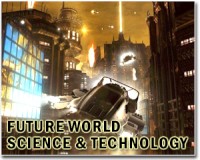 |
Washington (AFP) Feb 18, 2011 China has its eye on becoming the top science nation in the world, overtaking the United States and European nations, researchers at a US science conference said Friday. After being the world's main source of cheap manufactured goods, China is investing heavily in science and technology. "China hopes to become one of the leading sources of intellectual property in coming years," said Denis Simon, a professor at Penn State University who is also the science and technology adviser to the mayor of the Chinese city of Dalian. At a time when the United States and Europe are hamstrung by shrinking budgets, China has increased spending on science and technology "significantly," Simon said at the annual meeting of the American Association for the Advancement of Science (AAAS). "The Chinese have indicated that by 2020 they hope to spend around 2.5 percent of GDP (gross domestic product) on research and development," said Simon. In the United States, meanwhile, Republican lawmakers are talking about trimming a billion dollars from the National Institutes of Health, the world's largest public research institute, and slashing funds for other science and research agencies, in a bid to narrow a trillion-dollar US deficit. That is at odds with the billion-dollar boost President Barack Obama proposed for science and health research in his 2012 budget. The Republicans also want to slash funds for education by some $5 billion, even though Education Secretary Arne Duncan has warned that the United States must better educate its kids, especially in science and math, or risk becoming uncompetitive in the global economy. A report last year showed the United States has slipped from second place to 13th out of 34 countries in the number of students enrolled in university, and that it was stagnating in science teaching -- in 17th place -- and doing poorly in math, in 25th place. The Chinese city of Shanghai, which was considered a country for the education report, made its debut in the rankings in first place. More Chinese are enrolling in universities, which means there will "be more researchers in China than there are in the US," which will drive up Chinese scientific output and the quality of the reports, said Penn State professor Caroline Wagner at the AAAS meeting. In another sign that China is serious about moving into the top slot for science, the number of quality scientific papers coming out of the country -- measured by how often they are cited in other studies -- is growing exponentially. How often a peer-reviewed scientific report is cited by another scientist is considered a key measure of quality, Wagner said. The number of Chinese papers being cited is up, while the number of citations of US or European reports is declining. In sheer volume of work, China already produces more research papers in the fields of natural science and engineering than the United States, which is overall the biggest producer of scientific reports in the world, said Wagner. "But based on current trends, China will publish more papers in all fields by 2015," Wagner said. But there are obstacles standing in the way of China becoming the world's leading science nation. Among them, China has to overcome a massive brain drain, which sees nearly three-quarters of Chinese who travel abroad to study staying overseas, and a culture of fabrication and plagiarism among Chinese researchers, that Simon said could be driven by intense pressure and competition.
Share This Article With Planet Earth
Related Links Space Tourism, Space Transport and Space Exploration News
 Europe to simplify patent system
Europe to simplify patent systemBrussels (UPI) Feb 15, 2011 Europe's complex and expensive procedures for granting patents for inventions will be simplified under a new system approved by Euro lawmakers, officials said. Under the plan, a uniform procedure for registering patents in Europe will be adopted by 25 of the European Union's 27 member states, the BBC reported Tuesday. Currently, European patents can cost 10 times as much to procu ... read more |
|
| The content herein, unless otherwise known to be public domain, are Copyright 1995-2010 - SpaceDaily. AFP and UPI Wire Stories are copyright Agence France-Presse and United Press International. ESA Portal Reports are copyright European Space Agency. All NASA sourced material is public domain. Additional copyrights may apply in whole or part to other bona fide parties. Advertising does not imply endorsement,agreement or approval of any opinions, statements or information provided by SpaceDaily on any Web page published or hosted by SpaceDaily. Privacy Statement |